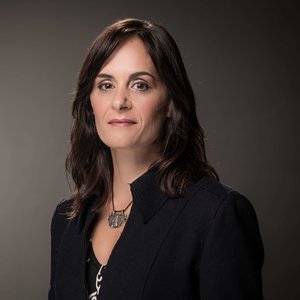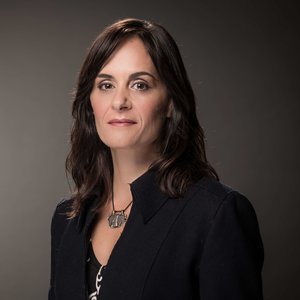Top Women in Cybersecurity: Niloofar Howe

Niloofar Howe, Chief Strategy Officer, RSA
Niloofar Howe has a lot to balance as the cybersecurity landscape shifts. As Chief Strategy Officer for RSA, she’s responsible for the health and direction of the business, as well as figuring out a way large incumbent companies like RSA can work with a broad set of companies to deliver on the changing needs of her customers.
Howe has learned how to hone in on strategies by working alongside former government leaders, including former NSA Director Lt. General Ken Minihan during her time at Paladin Capital Group. Now, she’s busy ensuring RSA is well positioned to deliver globally .
Can you talk about the biggest challenge you’ve faced in your career? How did you conquer that challenge?
There isn’t one good answer to this question because professional challenges change as you progress in your career.
 As I progressed and earned a seat at the table, though still junior, one of my biggest challenges was being heard and being taken seriously. To overcome that, I always made sure if I had a seat at the table, I proved that deserved it by speaking up thoughtfully and effectively — not just by stating my opinion, but more importantly by asking questions. Active listening is incredibly powerful and it’s often lost on people that showing you can effectively work your way through an issue is as important as getting to the ultimate answer.
As I progressed and earned a seat at the table, though still junior, one of my biggest challenges was being heard and being taken seriously. To overcome that, I always made sure if I had a seat at the table, I proved that deserved it by speaking up thoughtfully and effectively — not just by stating my opinion, but more importantly by asking questions. Active listening is incredibly powerful and it’s often lost on people that showing you can effectively work your way through an issue is as important as getting to the ultimate answer.
And finally, executive leadership has an entire different set of challenges. For example, early in my professional career, my blind spots were just learning opportunities that had minor impact on the organizations I was a part of. As an executive, my blind spots can have disastrous effects on the organization. Continuous self-examination to make sure I know where my blind spots are and turning into them is an incredibly important challenge.
What would you say to young women who are thinking about a career in technology or related fields, or just starting out in their careers? What’s the best advice you could offer for success?
There is a lot of fodder out there about how hard it is to be a woman in technology. Ignore it. Those issues exist in most industries, especially ones that are male-dominated— law, banking, finance, etc. Human beings are flawed, and so any organization run by us will be inherently flawed. That’s okay. Don’t focus on flaws because there is no perfect organization. Instead, live at the intersection that maximizes your ability to work on things that excite you and people who inspire you. If that is in the tech sector, fantastic. We need diversity in tech— not because it’s a social good — but because diversity drives innovation, diversity drives productivity, diversity leads to better outcomes, and importantly, diversity leads to a better organizational culture.
Why is it important to you to empower women and other minorities to join more technical and technology-related fields?
The foundation for innovation is diversity. We need to have diverse perspectives to drive new thinking in every industry, including in technology-related fields, and especially in cyber. And while we need more diversity in the sciences, that is a multi-generational problem. We also need women and minorities, who, while they may not have studied math science or engineering, still have technical aptitude and can work with mathematicians, scientists and engineers, to build the solutions and the companies that will improve how we live, work and play.




